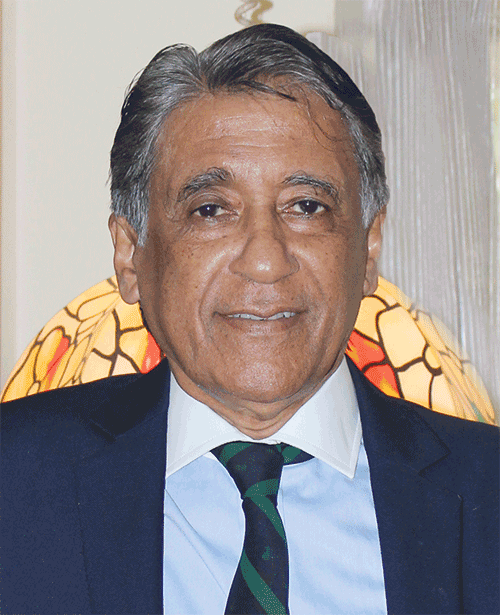 Although widely feared neta-babu licence-permit-quota raj has substantially disappeared from Indian industry following the historic economic liberalisation of 1991, this dreaded regimen seems to be alive and well in Indian education. Abject sycophancy and pandering to the neta-babu brotherhood was on full display at the FICCI-ARISE School Education Conference, 2017 convened by the Delhi-based Federation of Indian Chambers of Commerce & Industry (FICCI) and ARISE (Alliance for Re-Imagining School Education).
Although widely feared neta-babu licence-permit-quota raj has substantially disappeared from Indian industry following the historic economic liberalisation of 1991, this dreaded regimen seems to be alive and well in Indian education. Abject sycophancy and pandering to the neta-babu brotherhood was on full display at the FICCI-ARISE School Education Conference, 2017 convened by the Delhi-based Federation of Indian Chambers of Commerce & Industry (FICCI) and ARISE (Alliance for Re-Imagining School Education).
The objective of the promoters of ARISE is to establish this association — promoted by Prabhat Jain, promoter of the Gurgaon and Noida-based Pathways schools, Naga Prasad Tummala, chairman of the Hyderabad-based People Combine Educational Initiatives Pvt. Ltd which has promoted K-12 schools under the Oakridge International brand name, and Manit Jain, co-founder and director of the Delhi and Gurgaon-based Heritage Group of schools — as a private schools lobby under the FICCI umbrella. Given the excellent reputation and public esteem these schools enjoy, the ARISE initiative deserves the support of all right-thinking citizens alarmed by continuously sliding standards in K-12 education.
Therefore when your editor received a FICCI invitation to chair a panel discussion at the inaugural FICCI-ARISE national conference convened in Delhi on April 3, it was readily accepted. Even though the April issue of EducationWorld wasn’t fully completed, I flew to Delhi on the eve of the conference (entirely at our own expense).
The morning session went well with Union HRD minister Prakash Javadekar expressing support for FICCI-ARISE on the ground that the BJP/NDA government welcomes all suggestions for formulating its long-awaited New Education Policy. Moreover in the last session before lunch, well-known and forthright education expert, investor and former Infosys director T.V. Mohandas Pai delivered a tour de force FICCI-ARISE inaugural lecture predicting a dire future and mass unemployment for the nation’s huge youth population unless Indian education across the spectrum is radically reformed.
However the conference went rapidly downhill in the afternoon when Prabhat Jain took charge of the proceedings. When your editor’s panel of eight speakers began discussing the somewhat contradictory ‘Role of government as policy maker, regulator and operator’, the conference was already 40 minutes behind schedule. In this context it’s germane to note that three government bureaucrats — P.K. Das additional chief secretary of the department of school education of Haryana; Adityanath Das, principal secretary of the department of education, Andhra Pradesh, and Manish Garg, joint secretary (school education and literacy) of the Union HRD ministry — were on my eight-member panel.
As I interrupted a lecture by Das, who had avoided my question about his satisfaction with the role of government as a policy formulator, Jain intervened, objecting to my interrupting the secretary as the entire audience had specially come to hear Das. Objections were raised by Jain again when inconvenient questions were posed to Adityanath and Garg who (like Das) didn’t object and gamely attempted to answer them.
Fifteen minutes into my panel discussion, exasperated by the repeated interventions of Jain who evidently experienced deep pain on behalf of the bureaucrats, I invited Jain to take over as moderator of my panel — an offer which he accepted with alacrity. Surprisingly, none of the FICCI personnel including senior director Shobha Mishra-Ghosh objected to Jain’s self-serving interventions and hijacking the conference. According to Mishra-Ghosh, your editor’s “tone wasn’t sufficiently respectful” of the gracious bureaucrats.
The backstory to Jain’s repeated interventions is that the Pathways World School, Gurgaon for the uber rich (tuition fee: Rs.5-9 lakh per year), is in the crosshairs of the state government and NGOs demanding fees regulation. Moreover the Pathways schools are reportedly non-compliant with the recognition norms of the RTE Act. Hence his high anxiety to curry favour and hijack ARISE to serve his personal interests. Curiously, none of the ARISE members who have reportedly subscribed Rs.4-6 lakh for membership of the association, seemed to mind either.
Ab initio since it was launched in 1999, EducationWorld has defended the fundamental right of citizens and edupreneurs to establish and administer educational institutions of their choice and levy reasonable tuition fees commensurate with investment — a fundamental right affirmed by the Supreme Court in its historic full-bench judgement in T.M.A Pai Foundation vs. Union of India & Ors (2002). If FICCI and ARISE believe this valuable right of institutional autonomy and self-governance will be realised through sycophancy and abject prostration before the neta-babu brotherhood, they are suffering grave delusion.
A dialogue between private educationists and government to radically transform Indian education in the national interest needs to be conducted on equal footing. The FICCI-ARISE partnership won’t succeed unless both organisations rise from their kneeling positions.
(Dilip Thakore is former founder-editor of Business India and Businessworld and currently publisher-editor of EducationWorld)